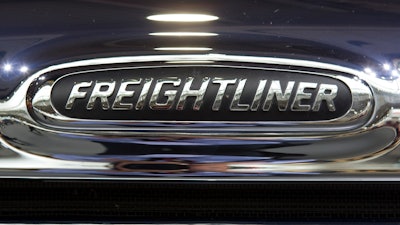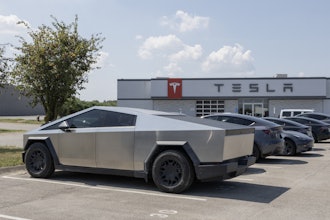
DETROIT (AP) — The U.S. government's highway safety agency is investigating complaints that the automatic emergency braking on big Freightliner semis can stop the trucks unexpectedly for no apparent reason.
It's at least the third recent investigation by the National Highway Traffic Safety Administration into glitches with the technology, which has the potential to save lives because it can make vehicles stop or slow down for stopped or slowed traffic.
The probe covers about a quarter-million trucks made by Daimler from the 2017 through 2022 model years.
The agency says in documents posted on its website Tuesday that it has 18 complaints from owners alleging that brakes on Freightliner Cascadia trucks can come on without an obstacle in the road.
The reports say the trucks can brake without warning or any input from the driver. The braking ranges from partial application with little loss of speed to full application, bringing the trucks to a complete stop on the road.
The agency says it tested one of the trucks and it stopped for a steel trench plate on the road. Daimler Trucks said the trench plate does not represent real-world driving.
NHTSA says it will determine whether the braking problem is an unreasonable risk to safety.
The complaints don't cite any crashes or injuries due to the problem.
In a statement Tuesday, Daimler Trucks said it's committed to developing life-saving technology such as automatic emergency braking. "The company shares the same mission as NHTSA to reduce fatal crashes and serious injuries, and looks forward to continued collaboration with the agency to review AEB technology and the upcoming regulation and test procedures that are being developed for the industry by NHTSA," the statement said.
In February of 2022, NHTSA began investigating complaints that Teslas operating on the automaker's partially automated driving systems can suddenly stop on roadways for no apparent reason. NHTSA says more than 750 Tesla owners have complained of false braking.
During the same month, the agency opened an investigation of more than 1.7 million Hondas for a similar problem. At the time NHTSA said it had 278 complaints about the problem.
The U.S. government is in the process of adopting regulations to require automatic emergency braking on all new passenger vehicles and heavy trucks.






















